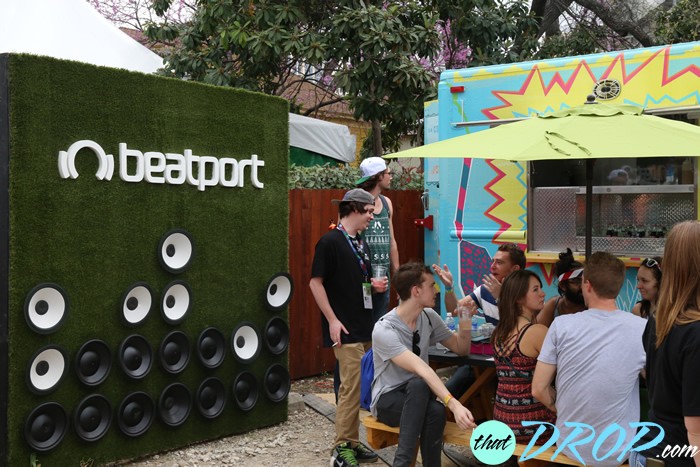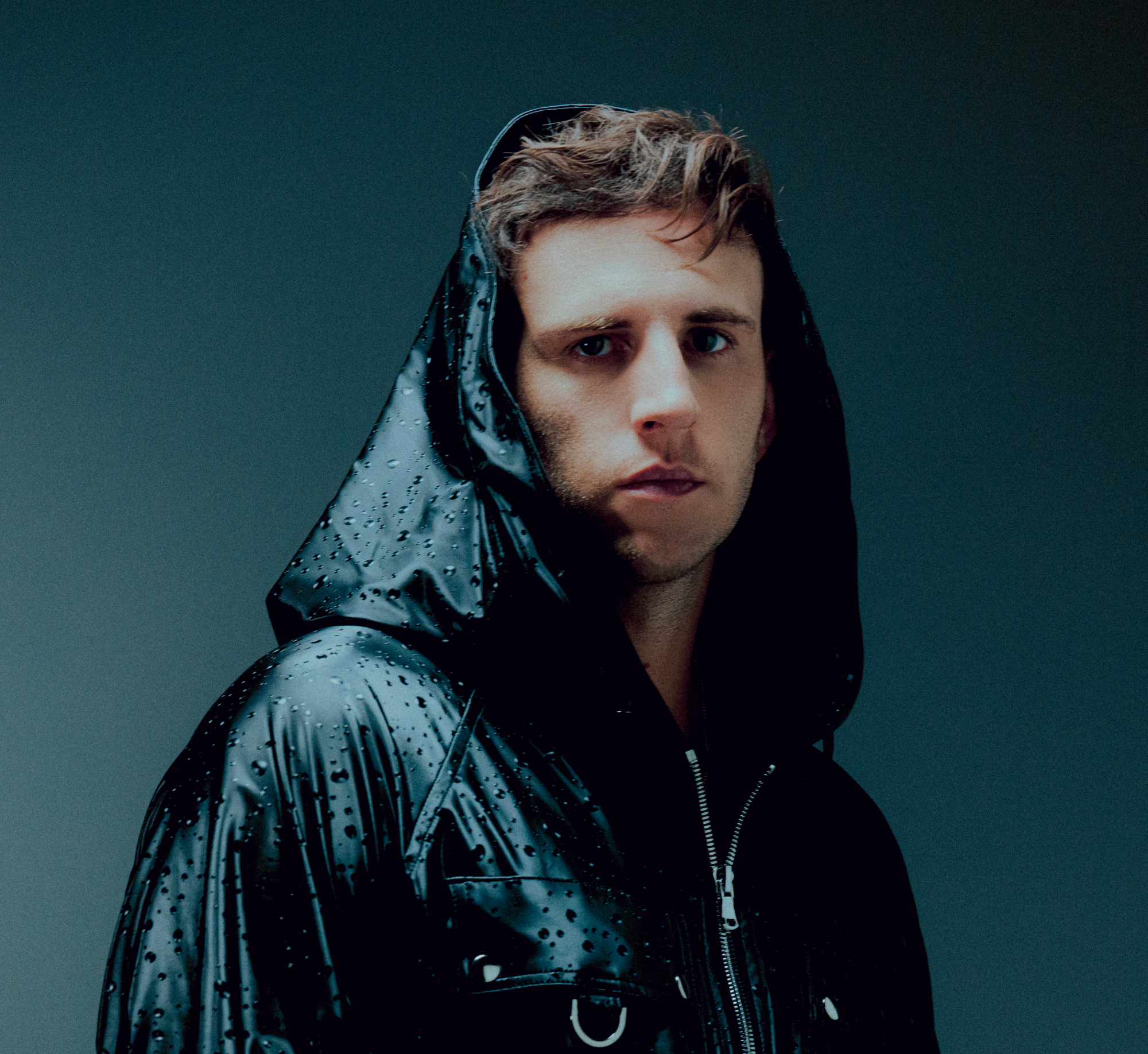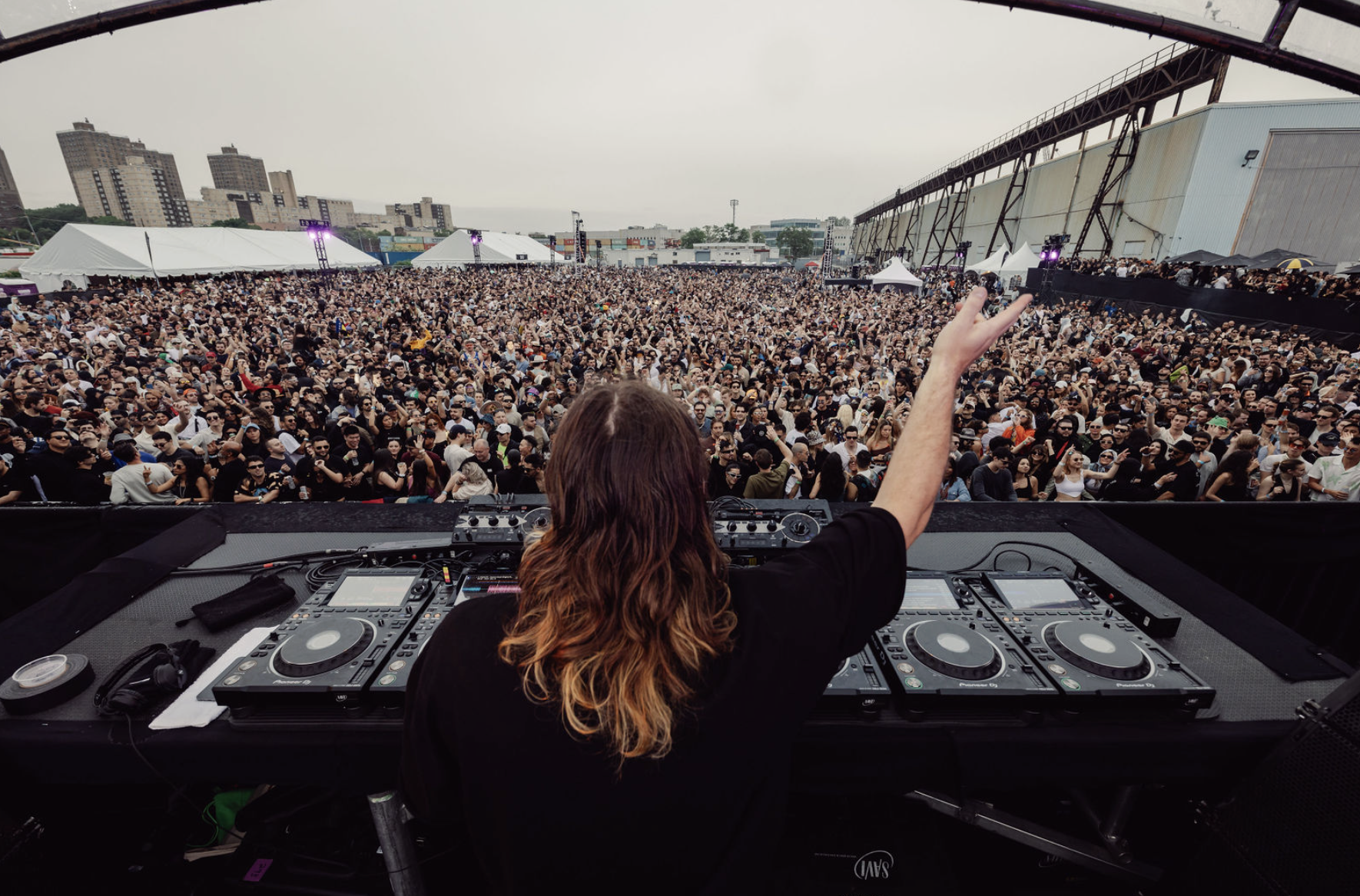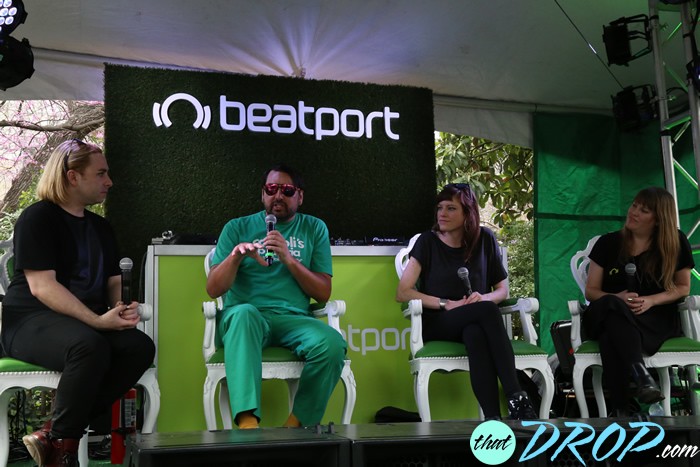
Today marked the beginning of the Music portion of the legendary South by Southwest Conference held in the aptly named “Live Music Capital of the World.” ‘Music, Film and Interactive’ conference attendees converged on downtown Austin, transforming the scene into a frenzy of new ideas, explosive media, intimate performances and mingling of dream chasers.
Nestled steps from the Austin Convention Center sat the Beatport House, a small almost historic looking house with skyscrapers a mere stones throw away. Dubbed as an “oasis of beats in a world of bands,” the Beatport House delivered on its claim.
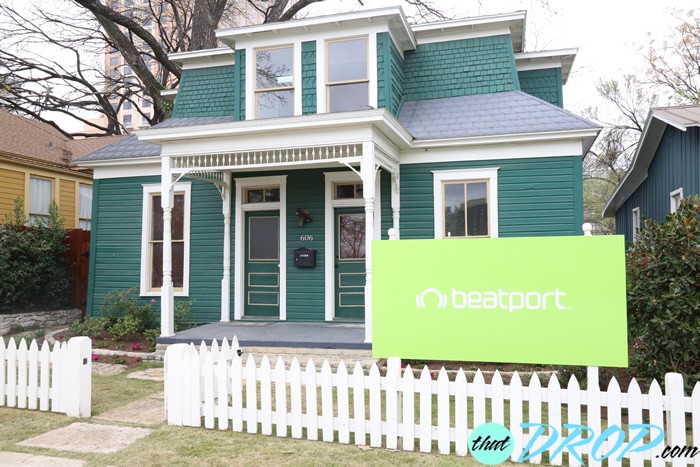
What drew us to the Beatport house today was one of a series of interesting discussions focused around electronic dance music – the state of the genre today and its positioning for the future.
The panel was moderated by Thump/Vice‘s Zel McCarthy and featured Liz Miller of Beatport, legendary promoter Disco Donnie Estopinal of Disco Donnie Presents (whom we interviewed earlier this year) and Stacy Gamble, Licensing/Label Manager at Dirtybird Records.
The backyard chat titled “EDM vs. EMC” was a spirited discussion aimed at identifying the role of the term “EDM” in today’s dance music culture. This topic has been floating around the industry for some time now and continues to be a subject of debate.
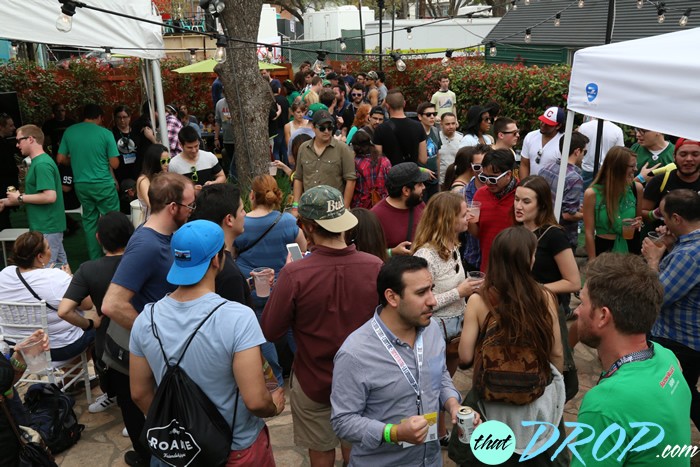
The backyard chat was described as follows:
Is EDM a genre fad, or a real musical movement that defines traditional definition? Where do we draw the lines between the definitions of the different music styles and the electronic music culture they provide the soundtrack to? Leaders from the media, the music industry, and DJ culture address these questions and more as they determine what it means for artists, fans and marketers as this community evolves in the years ahead.
Disco Donnie’s comments resonated most with us and stayed true to his thoughts expressed in our interview earlier this year where he explained:
I know people don’t like to use the term but I come from a time when people didn’t call it anything. As long as it isn’t something derogatory and people are enjoying themselves, I’m fine with it. I grew up when no one was calling it anything. In the end, it’s all the same thing.
He noted how he remains indifferent to semantics, encouraging us to remember that “EDM is just a word. We are all the same and we all come from the same family tree.”
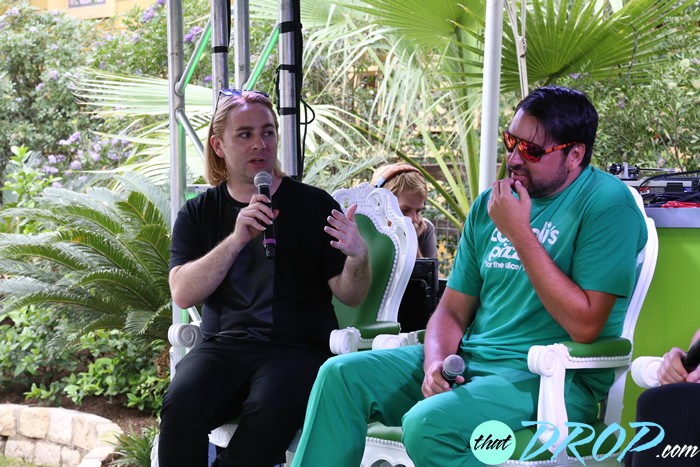
We were surprised to hear that certain (unnamed) artists have refused to play his shows as to not be associated with “EDM” or whatever they feel it represents.
The conversation covered the progression of dance music from the 80’s and 90’s into the 2000’s; how at some point the tradition shifted from dancing and facing your friends to everyone focusing on the stage and performance aspects. Naturally, certain venues lend themselves to this type of situation with massive production, elevated stages and tremendous visuals, but this change is notable in the progression of the movement over time.
Stacy mentioned how Dirtybird works to keep their artists and fans on the same level, focusing the attention on everyone enjoying themselves and having a good time as opposed to always focusing on the artist.
Donnie recounted the days where they’d pull the sheets off their beds to project on at shows, and how today it has evolved into massive LED boards and mind-blowing stage production. He mentioned how the relationship with SFX has allowed his organization to keep ticket prices low while booking premium acts and continuing to elevate shows to the next level. Noting that making progress means doing a better show this year than last year and always continuing to improve and evolve.
The panelists commented on what appears to be the main disconnect between EDM and EMC; the media’s captivation with EDM as a catch-all term to describe Electronic Dance Music, culture, events and the behaviors of certain fans as a whole.
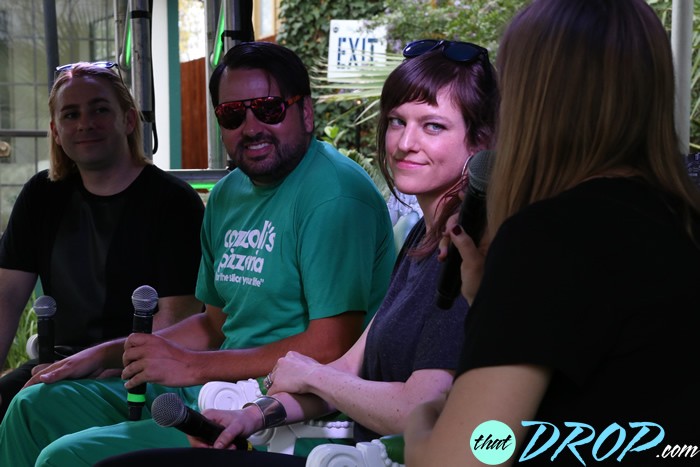
Labeling it as a “shallow association with the genre,” and relating “EDM” to getting high and attending a show on the weekend without continued connection to the music and culture.
We must admit, there absolutely exists a small sect of dance music fans that act irrationally and attract the wrong attention to the genre.
The media’s association with the term EDM has cast a slight shadow on the dance music industry by grouping everything together, good and bad.
But this exists in any genre of music, especially a subculture that is exploding into the mainstream.
Disco Donnie’s comments continued to align with our beliefs about what EDM represents, focusing on how anything that brings people together to the music and experiences is a positive thing.
Our opinion is that EDM is just a term for the dance music movement.
A simple association that frames the discussion towards a common understanding, allowing us to explain all it encompasses quickly and efficiently. EDM is nothing more than a “gateway term” that opens up fans of music into a new and different world of music discovery and experiences.
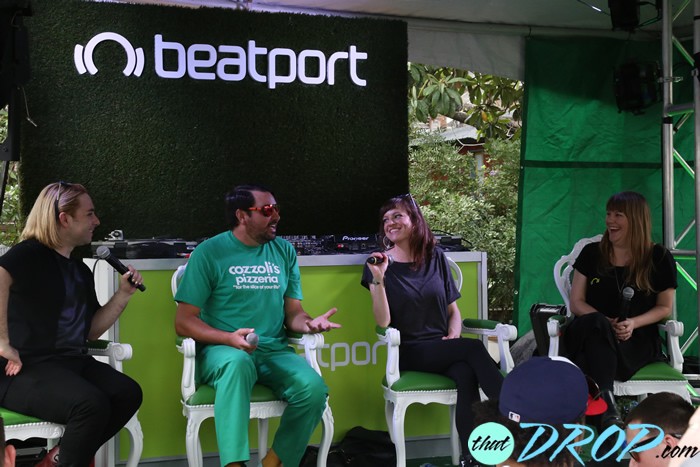
Years ago, electronic dance music didn’t have much of a place in popular culture, making it incredibly difficult for music fans to know about it, experience it, discover more of it and fall in love with it. Anything and everything that helps bridge the gap between fans of hip-hop, rock, R&B and other music genres into this vast array of music and culture is incredibly positive.
Your average music fan isn’t likely to casually attend a Claude VonStroke, Justin Martin or Jamie Jones show. They follow the traditional methods of discovering music via the mainstream artists: your Calvin Harris’s, your David Guetta’s and your Tiesto’s of the world.
But there is unmistakable beauty in that, because those artists have achieved the platform and reach to plant the seed that can evolve those fans into consumers of electronic dance music. Fans that come in the door listening to Calvin Harris may find themselves a year later listening to Richie Hawtin, Carl Cox, Above & Beyond, Pretty Lights and so many others.
We encourage those who disagree with the term and work to disassociate themselves with the negatives, to instead focus on how this term helps to propel the culture forward despite arguably minimal negative connotations.
We understand that point of view and sincerely respect it, but the simplicity of referring to the movement as EDM is us allowing a digestible term to help convert lovers of music into electronic dance music fans. Fans who historically and with proven data, have incredible loyalty.
We don’t refer to it as EDM because we want to “label” it or minimize the different facets into one catch-all term; nor do we believe that house/electronic music and EDM are different things. We refer to it as EDM because it is digestible, understandable and easier to elucidate to the masses.
The goal is to propel the genre and culture forward; if a term gets more bodies in the crowd, more ears hearing the music and more people experiencing and discovering the culture, it is a positive for us all.
After all, we just want to share the music and experiences we love so much with anyone willing to enjoy it.
